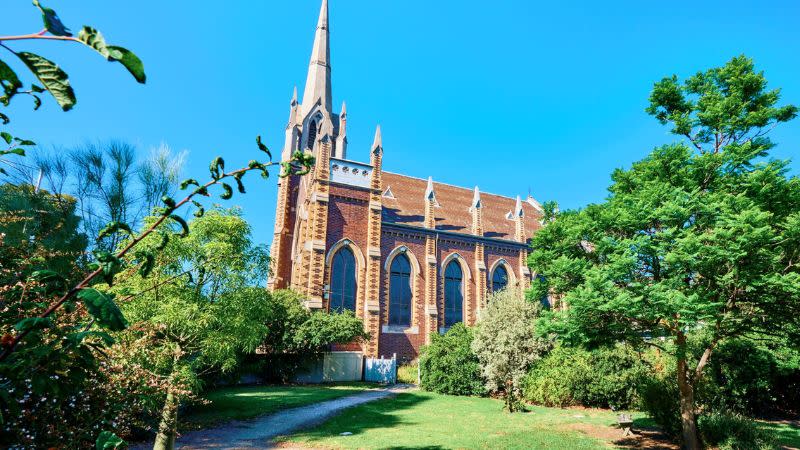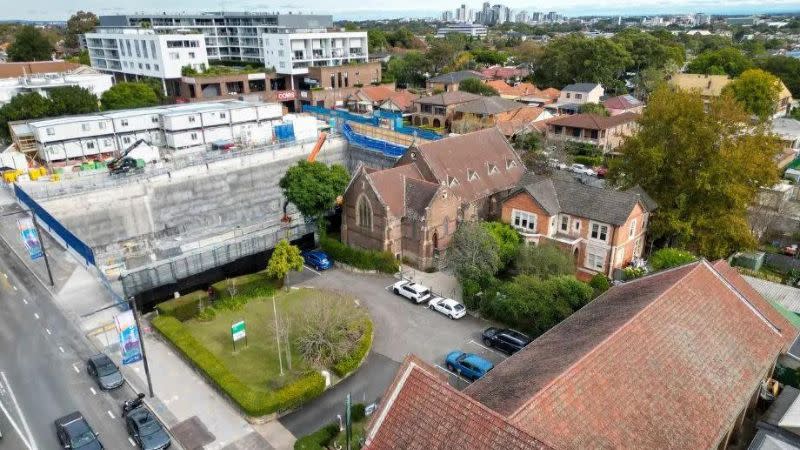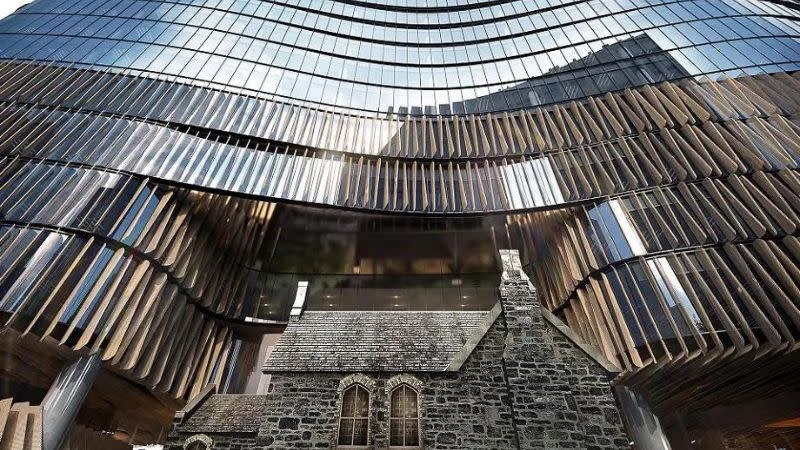[+] Heaven Sent: Churches Find Salvation in Property Development

Imagine owning a piece of land on the main street of every town and city across the country, land that is ripe for development.
That is the reality for many religious groups—asset-rich and, at times, cash-flow-poor organisations that are now looking to put down the collection plate and pick up new income streams.
And while the path to spiritual and financial enrichment can be risky, the rewards are there, with plans already under way to redevelop prime church-held sites.
The first question for developers and organisations is, however, would the land be sold for a quick dollar or kept for future financial gain?
Sell or stay
The time was right to sell a 4882sq m landholding in North Melbourne for an undisclosed amount for the Uniting Church in Australia Synod of Victoria and Tasmania.
The sale of the site at 579-599 Queensberry Street and 51-61 Curzon Street, North Melbourne, was offered by a public expressions-of-interest campaign.
Uniting Church of Australia director property services Peter Thomas said the site had an 170-year worship history, making it a compex and unique property.
“The Uniting Church and the Mark the Evangelist Congregation are pleased to see the next stage of life for the church and the site now about to begin under new ownership, following widespread interest from multiple parties,” Thomas said of the sale.
JLL capital markets Jesse Radisich said there was robust demand in the market for significant landholdings with income and upside potential, and many active purchasers.
“The campaign generated 217 interested parties and despite some of the complexities and challenges of the site from a heritage and environmental perspective, a very pleasing sale outcome and settlement arrangement for our client was achieved,” Radisich says.
And while the Uniting Church put this site up for sale, it and other denominations were looking at options more broadly.

Anglican Church Growth Corporation chief executive Ross Jones said they were looking at new uses for their properties and identifying sites with excess land with potential for development.
“In the past we have sold bits of property to property developers and property interests and essentially when you do that over a number of decades and in multiple locations you end up selling the farms,” Jones says.
“So our main aim is to say, how can we activate the land during the week but still have it available for church, ministry and community outreach?”
The Anglican Diocese created a property startup three years ago and identified 14 sites for urban renewal from a possible 70 parishes.
The diocese has a pipeline of projects incorporating affordable housing, specialist disability accommodation, student housing, key-worker accommodation, crisis accommodation, seniors living, early learning facilities and a spectrum of multi-purpose spaces for community use.
One of the largest was in Bankstown, a 13-storey development with a multi-level plaza and auditorium on the lower levels for the congregation.
To take advantage of the vertical integration in the Sydney mini-city, the diocese plans to develop key-worker and student accommodation above the auditorium.
Another project under development is a mixed-use precinct with affordable housing to be built on 0.4ha of land next to Five Dock Metro Station, 10km from Sydney CBD.
Risk and reward
For organisations, the benefit of increased revenue is obvious but developing with a partner had its risks—particularly for the developer.
“Developers tend to deal with individual parishes and they say, you know. we should do something together,” the Anglican Church Growth Corporation chief executive says.
“Everyone gets really excited, the developer goes away, spends a lot of money ... then the parish changes their mind.”
To combat this, the growth corporation created urban-renewal programs, so that when a parish signed up, if it got cold feet it would reimburse the developer for costs.
“What we want to do is give development partners greater certainty that it is going ahead,” Jones says.
For its Five Docks project, the Anglican Diocese partnered with Traders in Purple, who were invited to a private tender.
Traders in Purple director George Geagea says this will be its eighth partnership project and, although more complex, they are worth it.
“It’s always easier to do a private project because you have full control,” Geagea says.
“No two partnership projects are the same, once we deep dive into these [immediate and long-term] requirements, we then start to adjust the risk and profit of the project and that very much feeds back into it.
“What is the requirement upfront and what is the requirement into the future? Is it recurring income, is that what the church is looking to do or are we partnering with a church that is quite financial and stable?”

Traders in Purple director Charles Daoud says this project will be paid for through the residential component but was by no means a traditional finance model, in that it had more intent.
“We are next door to a metro station which is quite fortuitous,” Daoud says.
“It will be used to actually develop housing and then increase the supply of housing in that immediate precinct.
“That is not only because Sydney generally needs it but it is the strategy of the government, state and local, to make sure there’s housing around where millions of dollars are being spent in infrastructure.
“Anybody with any decency is looking for ways they can help solve the housing crisis—it is very tough out there.”
While the Anglican Diocese has a dedicated property growth arm, creating relationships with other organisations takes time but ultimately opens doors.
Traders in Purple previously worked on The Abbey in Cronulla, an adaptive reuse of a Uniting Church and Sunday school hall into luxury residences; restored the Sisters of Mercy Chapel in Goulburn; and the historic Greyleigh homestead in the Kiama hinterland into luxury boutique accommodation and wedding venue; and developed the Correa Gardens community housing development.
Greenfield developments: A two-way street
For the Anglican Diocese, new churches and land is much easier to plan and develop.
Jones says churches can make a big difference in connecting neighbourhood, providing support to the people and community spaces.
“We did a calculation and just to keep up with population growth … we need to build a new church every year for the next 30 years to keep up, so it’s a massive task,” he says.
“It [supporting public spaces] is one of the things we also want to do, because councils aren’t keen to take on community infrastructure and don’t have the money to maintain that.
“So that’s anything from utilsing our halls for community halls to having outdoor basketball courts on church land and skate parks.”
A vision for major projects
Megachurch Hillsong purchased Festival Hall in Melbourne for $23 million at the start of the pandemic and revealed its development plans.
It planned to renovate the site, creating a round theatre, additional space for a multi-storey commercial building as well as restoring the building’s brick facade.
However, these plans went on hold when Live Nation Australia took on a multi-year lease on the site.
Another major project in Melbourne is the Uniting Church of Australia’s partnership with Charter Hall for Wesley Place precinct.

The $1.5-billion project is slated for a 11ha site on Lonsdale Street in the CBD and includes three commercial towers,
It also includes the $20-million restoration of the neo-gothic Wesley Church and three other heritage buildings on the site.
More recently, the Uniting Church won approval on a $148-million aged-care facility on the Central Coast as well as a $91-million senior living development at Emu Plains.
Religious groups are not the only community organisations looking to develop, with a number of RSL clubs having large-scale plans under way.
These include the Richmond RSL Club’s Melbourne apartment project while Castle Hill RSL Club is working on more than $370 million in developments.
You are currently experiencing The Urban Developer Plus (TUD+), our premium membership for property professionals. Click here to learn more.















